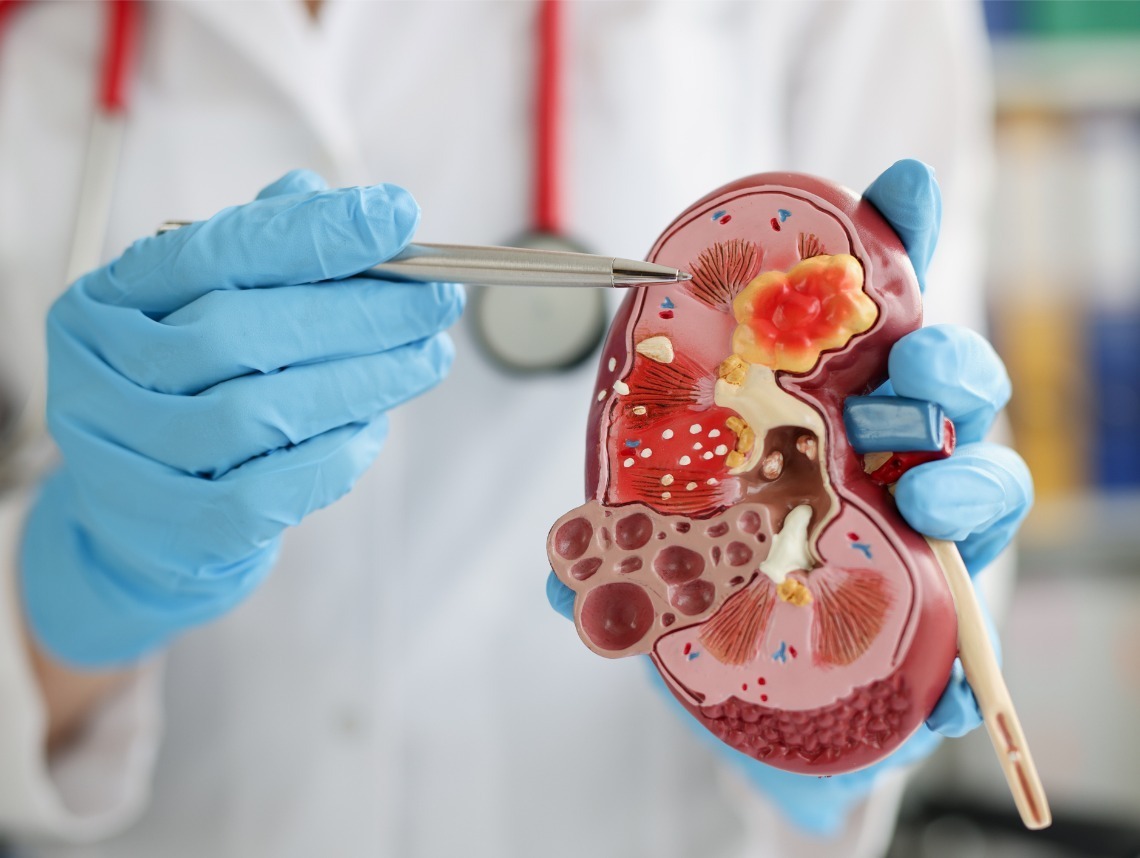Children are particularly vulnerable to hydronephrosis which causes the kidneys to swell and enlarge due to urine backup. Hydronephrosis has multiple causes, so it needs to be properly diagnosed and treated. This article will explore the symptoms, causes, diagnosis, treatment, and care for a child with hydronephrosis.
Symptoms of Hydronephrosis in Children
Hydronephrosis refers to the abnormal dilation of the renal pelvis and calyces, part of the kidney’s drainage system. This occurs when urine flow is obstructed, causing urine to accumulate and exert pressure on the kidney tissues. Common symptoms of hydronephrosis in children include:
- Abdominal or flank pain
- Frequent urinary tract infections (UTIs)
- Hematuria (blood in urine)
- Poor weight gain
- Palpable abdominal mass
- Urinary urgency or frequency
What causes hydronephrosis in children?
Many factors can contribute to the development of hydronephrosis in children, including:
- Urinary tract obstruction: Blockages in the urinary system, such as ureteropelvic junction obstruction, ureterovesical junction obstruction, or vesicoureteral reflux, can impede urine flow.
- Vesicoureteral reflux (VUR): VUR occurs when urine flows backward from the bladder into the ureters and kidneys.
- Ureterocele: A ureterocele is a congenital abnormality where the end of the ureter balloons into the bladder, obstructing urine flow.
- Neurogenic bladder: Neurological conditions, such as spina bifida, can lead to abnormal bladder function and urine flow problems.
- Posterior urethral valves: This condition, found exclusively in boys, involves abnormal flap-like tissue in the urethra, obstructing urine flow.
How is hydronephrosis diagnosed?
To diagnose hydronephrosis in children, doctors employ various diagnostic procedures, including:
- Ultrasound: A non-invasive imaging test used to visualize the kidneys and identify any dilation or abnormalities.
- Voiding cystourethrogram (VCUG): This test helps diagnose VUR by observing the flow of contrast dye into the bladder.
- Magnetic resonance imaging (MRI): In complex cases, an MRI may be recommended to obtain detailed images of the urinary tract.
- Nuclear renal scan: A radioactive tracer evaluates kidney function and urine flow.
- Blood and urine tests: These help assess kidney function and detect signs of infection or inflammation.
Treatment for Hydronephrosis in Children
The treatment and care of a child with hydronephrosis depends on its severity and the underlying cause. The primary goals are to relieve the obstruction, preserve kidney function, and prevent complications. Treatment options include:
- Observation and monitoring: Mild cases may only require regular monitoring to ensure the condition does not worsen.
- Antibiotics: In cases of urinary tract infections, antibiotics may be prescribed to treat the infection and prevent further complications.
- Surgery: Surgical intervention may be necessary to correct anatomical abnormalities, remove blockages, or repair vesicoureteral reflux.
- Ureteral stent placement: A thin tube may be inserted into the ureter to bypass the obstruction and restore urine flow.
- Catheterization: Catheterization can help drain the bladder and relieve urine accumulation.
Caring for a Child with Hydronephrosis
Aside from medical treatment, caregivers and parents play a crucial role in caring for a child with hydronephrosis. Some essential aspects to consider include the following:
- Maintaining good hygiene to prevent urinary tract infections.
- Encouraging fluid intake to promote urine flow and prevent dehydration.
- Following a healthy diet, low in sodium and high in fiber, to support kidney health.
- Regularly monitoring the child’s urine output and overall well-being.
- Seeking emotional support and guidance from healthcare professionals and support groups.
Hydronephrosis can be a concerning condition in children, but the outlook is generally positive with early diagnosis and appropriate treatment. Recognizing the symptoms, understanding the causes, and seeking timely medical attention is crucial for a child with hydronephrosis’s well-being and long-term health. By following the prescribed treatment plan and providing necessary care, parents and caregivers can effectively support their child in managing this condition. Remember, it is essential to consult with a healthcare professional for accurate diagnosis and personalized treatment recommendations for each case of hydronephrosis in children.
Contact Care Options for Kids for Home Health Care in Florida
It can be hard to balance your time between work, home, and caring for a child. That’s why our team of skilled professionals at Care Options for Kids is here to help.
Our home health care services offer one-on-one care in the comfort of your home. We refer loving and competent nurses to provide customized care for families — from a few hours a day to around-the-clock supervision. Contact us directly to speak with a home health care professional or request a free Pediatric Consultation. Together we can determine the best plan of action to keep your loved ones happy and healthy.
If you or a loved one are considering Pediatric Home Health Care Services in Florida, contact the caring staff at Care Options for Kids. Call today at (888) 592-5855.






